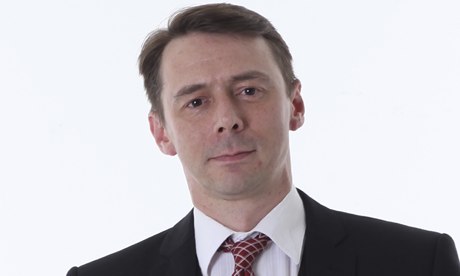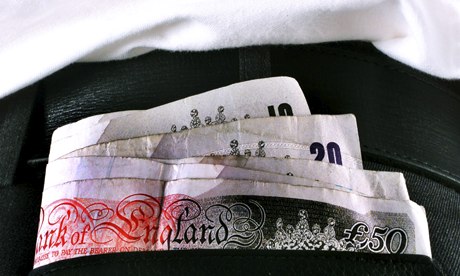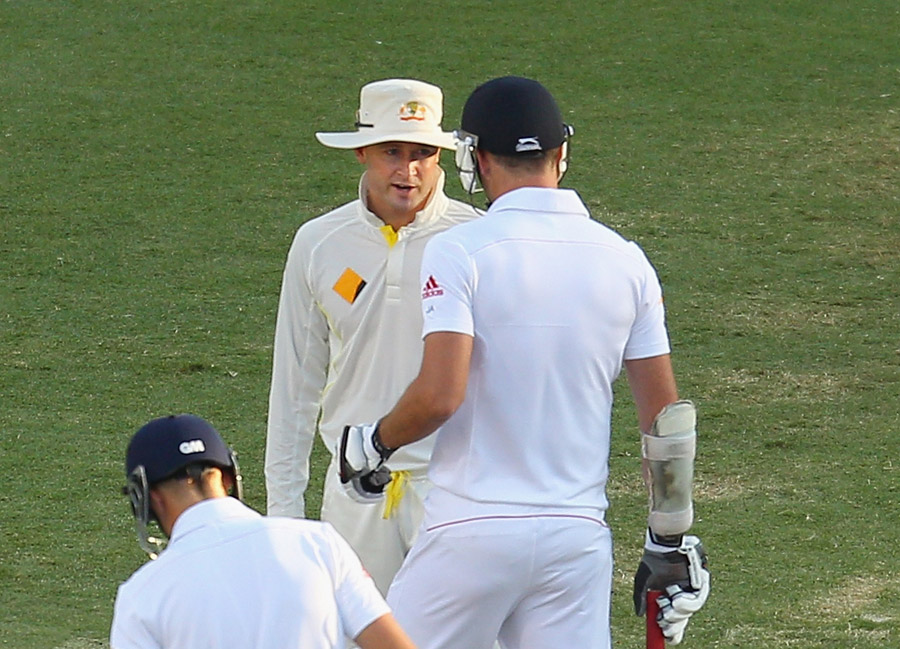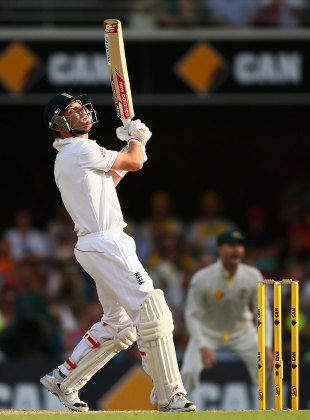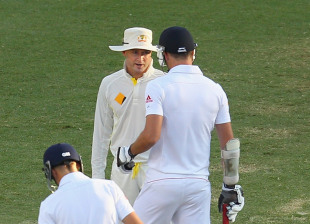Osborne's autumn statement will likely present a rosy picture of growth. But is it to be short-lived?
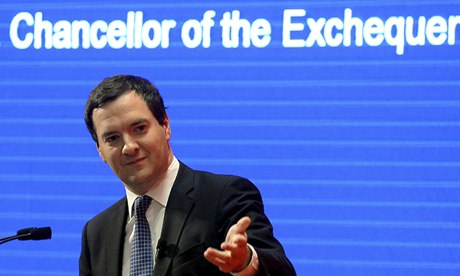
George Osborne is expected to be in bullish mood when he delivers his autumn statement on Thursday. Photograph: Goh Chai Hin/AFP
Brightly coloured New Balance trainers are beloved of celebrities, from Ben Affleck to Heidi Klum. But if you buy a pair of the US firm's shoes in Europe or Asia they are most likely to have been made on the edge of the Lake District. From its British factory in Flimby, on the Cumbrian coast, the hi-spec trainer-maker will turn out more than a million pairs of shoes this year, with more than a third of those made from scratch – cut out and intricately stitched by its 245 skilled staff, who spend more than a year learning their trade.
Since the great recession of 2008-09, when production of the high-value "lifestyle" lines that occupy most of its machinists' time was slashed in half, factory manager Andy Okolowicz says things have gradually improved: "We have had three or four years now of very steady business, both in the UK and for export." It has stepped up output of these fashion shoes by 24% this year and hired more than 10 new staff.
This is the US firm's only European factory, selling to markets across the world, including Germany, France, Japan and Australia – and with the union flag stitched prominently on to the back of many of the models, it's exactly the kind of Made in Britain success story the chancellor hopes to see more of as economic growth picks up.
In George Osborne's 2011 budget speech, he laid out a stirring picture of a new model for the British economy: one driven by a "march of the makers", such as Flimby's trainer-stitchers, instead of what he called "debt-fuelled" growth: buy-to-letters, non-stop shoppers and high-rolling City gamblers.
Two-and-a-half years later, as he prepares to deliver his autumn statement on Thursday, the chancellor can finally boast that the long-awaited economic recovery has arrived: growth has rebounded sharply, unemployment is falling, and business surveys suggest confidence has been restored. As Simon Wells of HSBC puts it, the economy has moved "from a state of despair, to repair".
In March, the independent Office for Budget Responsibility, which draws up the forecasts Osborne uses to plan his tax and spending policies, was expecting negligible growth of 0.6% this year. City experts now forecast more than double that. Similarly, the OBR's 1.8% projection for 2014 now looks far too pessimistic. New forecasts, to be published alongside Osborne's statement, are expected to be rosier and the chancellor is likely to repeat his claim that the UK is now set firmly on the "path to prosperity".
In fact, with a number of eurozone countries barely out of recession, it would hardly be surprising if the chancellor allowed himself a Gordon Brown-style bout of economic Top Trumps, comparing the relatively upbeat outlook for the UK with the gloomy prognosis elsewhere.
"Osborne is probably looking forward to this autumn statement, because he doesn't have to announce that growth forecasts have been revised down for the umpteenth time," says Lee Hopley, chief economist at manufacturers' group the EEF.
Yet, as James Meadway of the New Economics Foundation puts it, "this is definitely not the recovery the coalition wanted or forecast". The breakdown of the latest growth figures showed that business investment – critical for rebuilding a new-style, more productive economy – is down by more than 6% year on year; exports are all but flat, despite the 20% fall in the value of the pound since the crisis; and manufacturing output remains 9% below where it was in 2008, despite the successes of the likes of New Balance and Britain's rampant car-makers.
In Flimby, Okolowicz explains that, while it's undoubtedly a success story, his factory is the final remnant of a much larger shoemaking industry in the area: K shoes and Bata once had plants locally, employing several thousand staff, instead of fewer than 300 at New Balance. Britain is a long way from recapturing its role as an industrial powerhouse.
Hopley, of the EEF, says for her members, this year has been, "good, but not spectacular".
Meanwhile, consumer spending is expanding strongly, borrowing is up and house prices are reviving across a swath of the country. Meadway says: "This is not a recovery, it's essentially a reversion: we're going back to the same kind of economy we saw in 2004 or 2005." Mark Carney, governor of the Bank of England, recently said he expected three-quarters of growth over the next year or so to come from consumption or housing – but many economists fear that's a risky model.
In the capital, some of the worst excesses of the property boom years are back. Aggressive estate agents are pushing leaflets through homeowners' doors and lining up scores of buyers to jostle with each other at "open days". Penthouses in the lavish Battersea Power Station redevelopment are expected to go on sale – most likely to overseas buyers – for £30m. And official figures show the UK now has a record number of estate agents.
In many parts of the country, the housing market is barely stirring from a five-year slumber. But the Bank's financial policy committee – the 10 people with the job of bursting future bubbles – have become so concerned about signs of froth that they have scaled back the government-backed Funding for Lending scheme so that it will no longer subsidise mortgages.
Some lenders have said the removal of the Bank's support, which Carney described as "taking our foot off the accelerator", will make little difference because the market has now gathered momentum of its own. But others believe the rise in mortgage rates that is likely to result will be enough to pour cold water on the growing mood of optimism.
As for consumer spending – the other major support for economic growth over the past six months – since wages have continued to lag behind inflation this latest shopping spree appears to have been fuelled not by consumers' growing spending power, but households dipping into their savings or taking out loans – including the short-term, high-cost payday loans that have caused growing political controversy.
"It feels as if there's a significant lag factor between the economic indicators and what it means for real people in their real lives," says Gillian Guy, chief executive of Citizens Advice, whose advisers see two million people with debt problems each year. She says that the spread of insecure, short-term contracts and part-time work, together with benefits cuts and paltry wage growth, have meant that many people in work are struggling to make ends meet.
That's a picture echoed by Chris Mould, executive chairman of the Trussell Trust, which runs 400 food banks up and down the country, providing three days' worth of emergency produce for people in dire straits. "We're seeing more and more people in crisis coming to food banks and we anticipate the numbers of people who find themselves in financial crisis as a proportion of the population to go up in the next few months. Generally, people are being severely squeezed by price rises – energy costs, rent, food – and the price rises in these areas are running way ahead of inflation."
Osborne hopes that, as the recovery gathers pace, employers will start to loosen the purse-strings, hiring new staff and offering more generous pay, helping to ease the squeeze for consumers and validating the mood of rising optimism. But both Guy and Mould fear it may be a long time before the people who come through their doors are able to make ends meet; and if rising real wages fail to materialise, the consumer upturn could prove short-lived. There's no doubt that the backdrop to the autumn statement is far rosier than anyone, not least Osborne himself, could have hoped six months ago. But Britain's economic resurgence is far less of a victory for the likes of Flimby's highly skilled machinists, and more of a blast from the "debt-fuelled" past than the coalition would have wished – and, as yet, there's no telling how long it will last.


